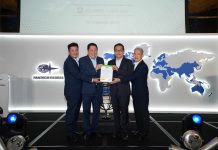It’s a brand new year, and that means a fresh start and new goals for your business. Employment Hero’s recently released SME Sentiment Report paints a picture of cautious optimism, where the confidence of leaders in business growth is plagued with concerns about rising costs and a changing economic landscape.
A striking 79% of respondents to the report, conducted among 540 business leaders in November-December 2023, expressed faith in their company’s growth prospects. This might seem incongruous against the backdrop of global uncertainties, but closer inspection reveals the roots of this optimism.
After weathering the storms of the past few years, many SMEs appear emboldened by their resilience and see this year as an opportunity to consolidate and expand.
However, this is not blind optimism. Half of the respondents anticipate an average or below-par performance from the Malaysian economy in the next twelve months. Rising costs and inflation, cited by 48% as their biggest challenge, cast a long shadow.
The removal of subsidies and a weakening ringgit further exacerbate these anxieties, particularly for micro and small businesses which often operate with tighter margins.
Greater Challenges for SMEs
SMEs encounter a perpetually expanding array of challenges. However, being aware of the primary issues and adequately preparing your organisation to navigate them ensure the continued prosperity of your business in challenging times.
When surveyed, business leaders pinpointed escalating costs and inflation (47%), cash flow concerns (28%), diminished revenues and customer base, along with interest rate hikes (both at 23%), as their foremost challenges.
In response to these challenges, SMEs are implementing or planning key measures to mitigate them. These include employing cost control measures (38%), expanding their product or service offerings (36%), and venturing into new markets (34%).
The strategic utilisation of technology, such as HR and payroll software, project management software, accounting software and more, proves to be instrumental in streamlining processes and reducing manpower costs, contributing significantly to effective cost control.
The report also found that leaders from micro and small businesses were more inclined to assess their company’s performance in the past year as average or poor, when compared to their counterparts in medium-sized businesses.
Only 59% of leaders from micro and small businesses regarded their company performance as good in the past year, in contrast to 74% of leaders from medium-sized businesses.
The primary reasons for the average or poor company performance in the past year include escalating costs and inflation, cash flow challenges, as well as decreased revenues and customer numbers.
Particularly, micro and small businesses are grappling with reduced revenues and customers, exacerbating the pressure on their already lean teams and slim profit margins.
In addition to the aforementioned factors, medium-sized businesses are contending with issues related to upskilling staff and shortages in manpower. This is likely attributed to higher salary expectations, a misalignment between industry needs and skills training, and an elevated rate of brain drain.
Government Grants: Success and Awareness
The report found that the Halal Industry Development Corporation Grants (24%) and the Digital Content (Development) Grant (23%) had the highest application and approval rates.
In contrast, the Bankable Investment Gameplan (BIG) Programme, the Cradle Grant, and the GrowBiz Programme emerged as the three grants that SMEs are least aware of.
Medium-sized businesses are more likely to secure approval for their grant applications, a trend observed consistently across all schemes and grants in the survey. Medium-sized businesses maintained an average approval rate of over 50%, whereas micro and small businesses achieved an average approval rate of 30% and above.
Micro and small businesses also exhibited a higher likelihood of either not applying for or being unaware of available grants compared to their medium-sized counterparts.
This disparity may stem from a lack of manpower or resources, a lack of experience in grant application processes, or a general unawareness of the opportunities accessible to them.
Nevertheless, micropreneurs are receiving the assistance they require, with a renewed emphasis on grants such as the i-Tekad programme. Currently involving eleven commercial banks in the social financing initiative, Prime Minister Anwar Ibrahim recently announced an increase in fund allocation for the initiative, elevating it from RM4 million to RM10 million.
Opportunities Abound for SMEs
With the broader macro perspective covered, attention now turns to the opportunities that SMEs are anticipating the upcoming year. Leading the list are digital transformation, artificial intelligence (AI), and automation.
Given the government’s dedicated focus on propelling Malaysia into a digitally-driven, high-income nation and a regional digital economy leader through the MyDigital initiative, it’s unsurprising that businesses are particularly enthusiastic about technological advancements.
The government has delineated its action plan in the Malaysia Digital Economy Blueprint, highlighting efforts and initiatives scheduled for implementation until 2030. SMEs, including businesses like yours, stand to gain significantly from these endeavors.
Ranging from the SME Digital Accelerator Programme to the 100 Go Digital Coaching Programme, a wealth of resources and initiatives are available for SMEs to leverage.
These programs play a pivotal role in assisting SMEs in identifying digital needs and solutions, thereby enhancing their efficiency and competitiveness. They offer hands-on guidance on the adoption of digital solutions, encompassing various areas such as digital marketing, sales, e-commerce, human resources, payroll, and even remote working.
For those eyeing global expansion, the Malaysia External Trade Development Corporation (MATRADE) remains a steadfast ally. Continuously aiding companies in bolstering exports and fortifying global market access, SMEs can register online with MATRADE for free.
This opens avenues for accessing services and receiving assistance in enhancing export readiness, facilitating expansion into international markets. Another significant opportunity lies in employee education and training for the forthcoming year.
Acknowledging the challenges faced by SME owners and business leaders juggling multiple roles, initiatives from Upskill Malaysia offer a valuable resource. These initiatives are tailored to assist SMEs in developing and enhancing their employees’ capabilities and productivity.
Furthermore, empowering employees to engage in self-paced upskilling through a learning management system provides them with the flexibility to choose from a diverse range of courses. This approach allows individuals to nurture their skills at their own pace, fostering personal and professional growth.
Key takeaways for SMEs:
➢ Embrace cautious optimism: Believe in your ability to grow, but stay mindful of the economic headwinds.
➢ Prioritise talent management: Invest in upskilling, address compensation needs, and combat brain drain.
➢ Go digital: Embrace technology to improve efficiency, reach new markets, and stay competitive.
➢ Seek support: Build partnerships, leverage government grants, and consult experts for guidance.
➢ Stay adaptable: Be prepared to adjust your strategies as the economic and talent landscapes evolve.
Malaysia’s SMEs are a resilient bunch, having weathered numerous storms in the past. They can thrive in this era of unprecedented change by capitalising on their inherent strengths, adapting to changing realities and embracing strategic partnerships. 2024 might be a year of uncertainties, but for Malaysian SMEs, it can also be the year they carve their path to success.
Get your free download of the SME Sentiment Report here.


























